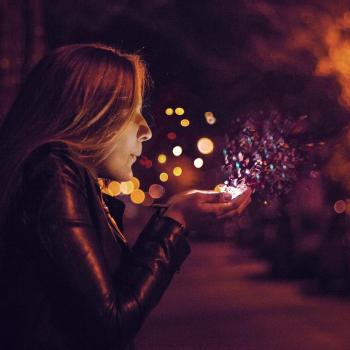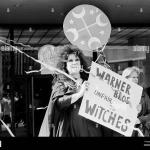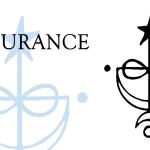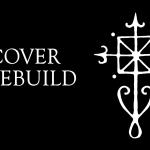Not all of us are polytheists. I get that. I’ve just spent a week watching Grey’s Anatomy marathon fashion, and I’ve thought very little about Paganism. When I did think about it, I thought about the things that annoyed me. Then I reminded myself I was on vacation and put it out of my mind. All things end, and so has my “vacation.” I’m not certain you can call it a vacation if you still make time to work everyday, but that seems to be the modern thing, to remain half at work when lounging on a beach. I didn’t go to a beach. I went down the hall to recliner and a grilled cheese sandwich to park my butt in front of a tv. But my mind was on a vacation. And now it’s back.
What to write about? The things I thought about regarding Paganism over the last week annoyed me, and I don’t want to write about things that annoy me. I want to write about what inspires me. But all I can think about are the things that annoy me. Why do they annoy me? While for each individual issue there is a separate and rational reason, my annoyance is over-arching. It blankets Paganism as a whole, thickly and without reservation. But there was a sticking point: polytheism.
I’ve written a lot about polytheism, especially over the last year. I’ve given it a break recently, but today I wondered why it stood out among all the things in Paganism in my mind. Then I got the answer. I know why I am annoyed.
Right now Goddess-worship, tarot, astrology, reiki, magic, ritual, meditation and all the things we practice are being reclaimed and invigorated. But not by us. By bland New Age philosophers and by Progressive Christians. In the larger picture, they own these things. They are the face of all our practices and theology. Ecological spirituality, shadow work, energetic healing, shamanic journeying and the power of intention are all things they own. For every small-town priestess teaching her handful of students about the power of intention there are millions watching Oprah express the same concepts and principles on television. They are the ones buying the bulk of the incense and tarot decks and crystals and attending workshops. They are the ones buying the books by Deepak Chopra on using Merlin as a guide to self-transformation.
They own it all. Everything. There is nothing you can name that they do not own. Even Vodou is practiced by Catholics using the names of saints instead of orishas. Even those things that have originated within our communities are now owned by them. The Divine Feminine is now a liberal Christian concept. Christian theology and atheism have taken over the Greek philosophers. They own it all.
Realizing that hurts. Being part of a multi-faith community like Patheos exacerbates the hurt. Over on our Spirituality channel you will find a Lutheran mystic talking about Mercury retrograde, premonitions and gurus like Tony Robbins and James Arthur Ray. If you are a tarot or astrology or reiki blogger, you would be part of the Spirituality channel, not the Pagan channel. That peeved me at first. Beyond that it made me angry. I felt like we owned the tarot. We owned astrology.
Here in my little Pagan echo chamber, in our self-imposed ghetto, tarot is deeply Pagan. Why? It originated with Christianity, was practiced for centuries by Christian heretics and staunchly Christian gypsies. We may have some of the most brilliant tarot scholars in the world in our communities, but we don’t own the tarot. Not by any stretch of the imagination.
We don’t own magick. You think D. John Dee built the Enochian system of magick in order to better understand Cerridwen or honor Pan? Of course not. He was seeking a powerful and direct channel to the Christian God that would rival anything the Catholic church could conjure up. Maybe the frame of reference you use to invoke the Goddess of Witchcraft is derived from the Kabbalah, but you don’t own that. It’s not what it was meant to do. And maybe pagans of old first charted the stars, but astrology as we know it is the product of medieval Christianity and Islam. We don’t own that either.
Even our symbols aren’t owned by us. The pentacle is the star of Saint Andrew, who was known not for derring do but for quietly and persuasively bringing people to Christ, including many of his more flamboyant fellow apostles. The ankh is worn by many African-American Christians. The triskele and Brighid’s cross by Celtic Christians. The Goddess symbols by theological feminists of the Christian faith. The symbols of cauldron, chalice, blade and wand by heretical Christians steeped in Arthurian mythos.
It’s the grand cosmic joke. Nothing we do isn’t done by some branch of the Abrahamic faith, and it is done by more of them, with more respectability and wider recognition. We own very little. We don’t own animism or panentheism or pantheism or necromancy or ancestor reverence or divination. We own very little.
But we own polytheism. The Pagan and indigenous peoples of the world own polytheism. It is quite distinctly ours and not theirs. Even the Catholics with their legions of saints have spent a great deal of energy and thought to prevent themselves from being labeled polytheists. That distinction lay at the heart of the Trinity: the mighty three-in-one.
I knew this intuitively, but never consciously until now. I sought out polytheists instinctively in building a team of writers. I agonized over my own polytheism. If we were to have a voice here at Patheos distinct and unique, it had to be a polytheist one. Because that is all we own. In the larger picture, it is all we have domain over. It is all that is properly designated as ours and ours alone. Because the Lutheran astrologers, the Catholic tarot readers, the Episcopal Divine Feminists and the Jewish magic to avert the evil eye will always outnumber us and be more recognizable.
It hurts. It doesn’t feel fair. It feels like they get everything, and we will always sit at the back of the bus regarding the practices that are so dear to us. In the end, we only have one piece that is ours alone. Only one.
Not all of us are polytheists. But for our communities, polytheism is the one thing we own. The one thing we have that they don’t want. The one thing they cannot take from us without destroying their own faith in the process. It is all we have.
That is why polytheism is important. It will always be important to our communities, and it will become more vital and central as we grow. We may not like that, but it is true. I’m not certain I like it. Any practice you undertake or philosophy you espouse will make you welcome in the New Age movement or among the liberal, progressive branches of Abrahamic religions. Polytheism makes you distinct. Makes our communities distinct. It’s all we own.
I don’t know about you, but this makes me quiet, sober, reflective. And a wee bit scared.

















